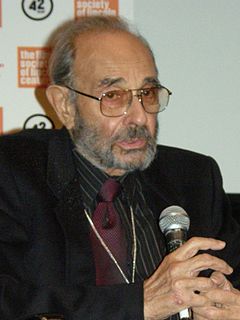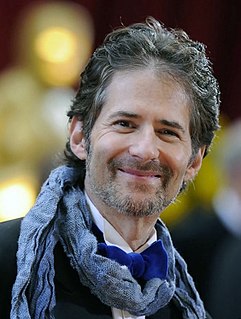A Quote by David Simon
We didn't create the culture of film. We certainly market it better than anyone in the world, but film could have happened anywhere. It's not distinctly American, as witnessed by the fact that there are film communities throughout the world that tell stories to their own cultural liking.
Related Quotes
The foreign audiences are somewhat surprised and happy to find an American film that asks questions about American culture. There's a certain kind of cultural imperialism that we practice. Our films penetrate every market in the world. I have seen and have had people reflect to me, maybe not in so many words or specifically, but I get the subtext of it - they're somewhat charmed and surprised and happy to see an American film reflect on our culture. Because they see other cultures reflect on our culture but they don't see US culture reflecting on itself in quite the same way.
Truth is a pursuit, it's a quest. And proof is certainly in the pudding in this particular instance, because the film, and the evidence accumulated in making the film, led to this man's release from prison. And that's hardly ever happened, if it's happened at all, in any other film that I can think of.
Film is more than the twentieth-century art. It's another part of the twentieth-century mind. It's the world seen from inside. We've come to a certain point in the history of film. If a thing can be filmed, the film is implied in the thing itself. This is where we are. The twentieth century is on film. You have to ask yourself if there's anything about us more important than the fact that we're constantly on film, constantly watching ourselves.
The film room teaches you how to do the job, how to study the game, how to teach the game from film. How to create an advantage for your team by knowing your opponent, and all their plays and tendencies. And there's no better guy in the world that I've been around than Jim O'Brien at breaking down film.
I absolutely refuse to accept the fact that any country in the world goes into a kind of film-making crisis. What happens is they lose confidence, they lose focus and the young film-makers of any particular generation can very easily get lost in that mix. It's happened in Italy, happened in France, happened in the U.K. during my lifetime.
When I do a film score, I am basically nothing more than a fancy pencil for hire. I don't own any of the music when I am - it belongs to the film company - and likewise, when I am done, even if I come up with something astounding that I may want to revisit... in the world of film composition, you can't do that.
I've always known that I've wanted to write, but I always saw myself doing that in the context of something other than film, so it was a really beautiful and kind of perfect moment in my life when I realized that I could combine this idea of wanting to write and tell my own stories with the environment I had grown up in and knew well - that I could make film as opposed to writing being a departure from what I knew.
Um, 'Soul Food'... Another wonderful little movie that could. Here's a film that, I think our budget was maybe $6 million. We shot it in Chicago in six weeks. I was so proud of the film, because it showed America that an African-American film about family could sell, could do well, could cross over and have true meaning.


































